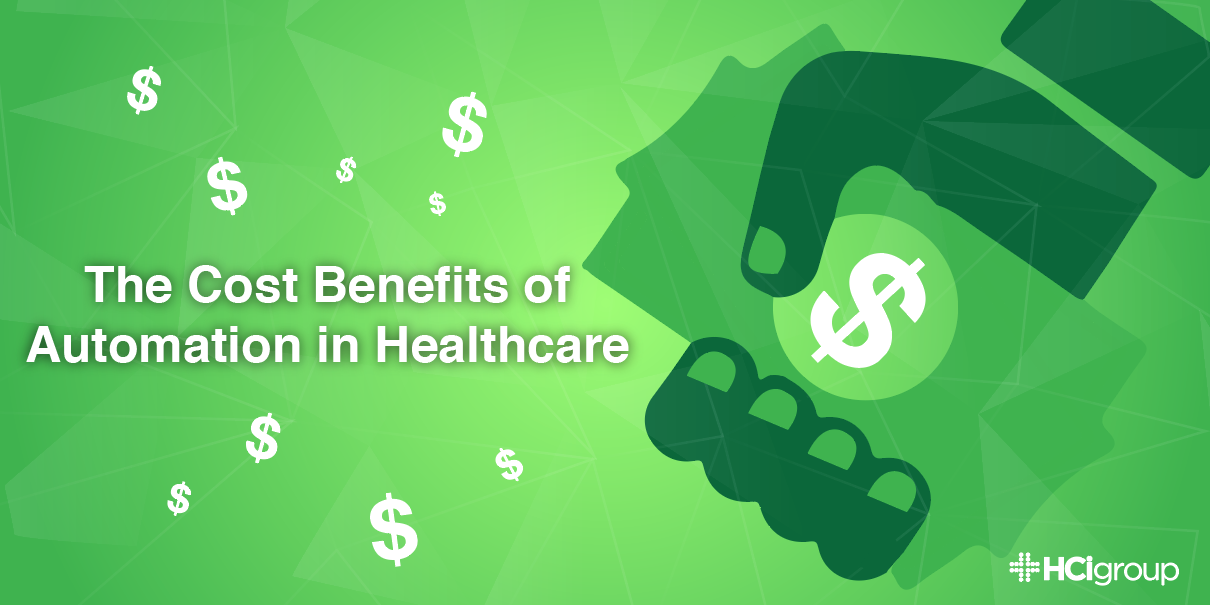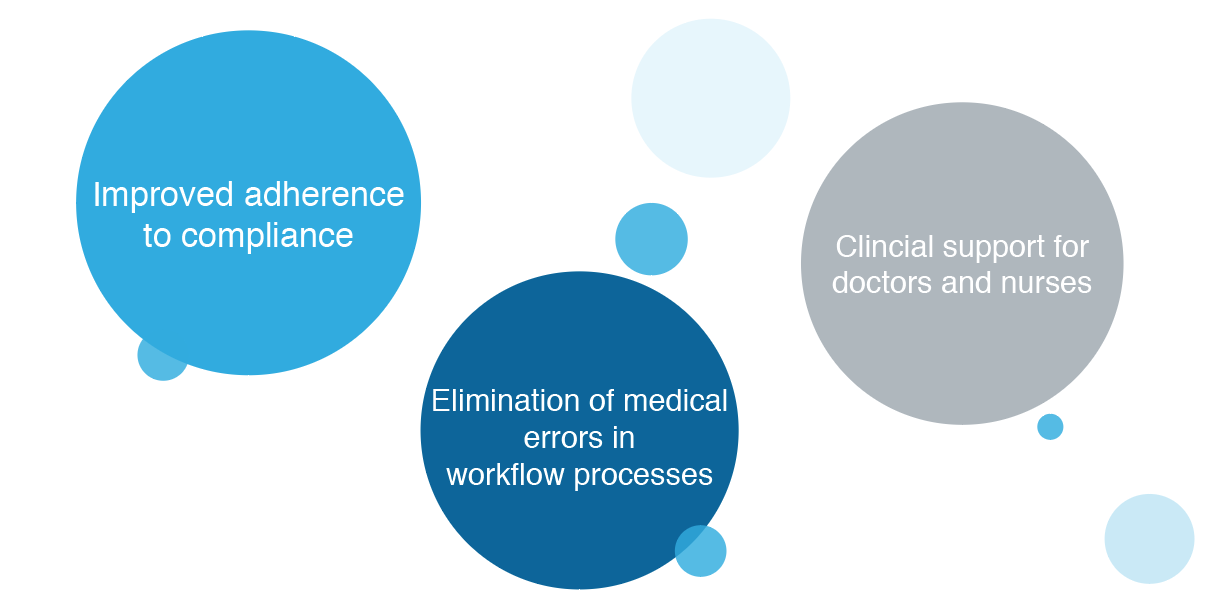The Cost Benefits of Automation in Healthcare


In this post, HCI’s Ken Bradberry, looks at how RPA helps healthcare organizations decrease costs.
Growing up in Detroit, my early memories of automation and robotics are of the automotive assembly line, where sparks moved in unison with the robotic arms that held cars as they were welded together.
Today, automation and robotics have moved from the plant floor to data centers and back offices, revolutionizing how organizations work.
Companies in many industries have reduced costs and improved quality by using robotic process automation (RPA) to streamline workflows.
With software able to automate the simplest of repetitive tasks to complex workflows that require the use of analytics and cognitive functions, organizations are completing work faster and gaining deeper insights than they could with human labor and intellect alone.
Healthcare organizations have yet to fully realize the benefits of automation. But they already are reducing costs, increasing revenue and improving care by implementing RPA in business operations and clinical care.
Insurance payers were the first adopters of RPA in the healthcare industry. For a decade now, RPA “bots” have been performing tasks associated with data entry, claims processing and other repetitive workflows, using little more than a screen scrape or a macro that emulates a human in front of a keyboard.
Until recently, hospitals and other healthcare providers haven’t had strong use cases for deploying automation. With the cost of meaningful use adoption of EMRs and all the applications and infrastructure to support them becoming fully realized, healthcare organizations are turning to RPA to improve the quality of care as well as the patient and provider experience, of course while also reducing cost.
Some of the benefits of automation in healthcare include:

Reducing costs may be the biggest benefit of RPA. RPA often costs around $10,000 per single-purpose bot, which could complete a task within a fraction of the time and cost of an employee.
In revenue cycle management, RPA enables eight times the amount of work to be done per minute than what could be done manually. It also reduces the resources required by working around-the-clock to complete tasks like checking a payer’s website for the status of a claim.
RPA also can be used in areas like account management, claims processing, underwriter support, customer support, billing, collections, reconciliation, and reporting and analytics consolidation, according to a CIO article on robotic process automation for healthcare.
Citing the HfS Healthcare Payer Operations Blueprint Report, the CIO article notes the RPA provides benefits in the following use cases in particular.
“1. Claims administration – claims adjudication and processing, payment integrity complaints, and appeals
2. Member management – account setup, eligibility, and enrollment, billing, benefit management, and customer service
3. Provider management – provider credentialing, provider data management, contracting audits, and network management
4. Health & care management – population health and wellness, utilization management, care coordination and case management, and remote monitoring
5. Administration – finance, accounting, and training”
Robotic process automation increases productivity at healthcare organizations by freeing employees from repetitive tasks. The return on that time saved can be significant, given that 22 percent of employee time is spent on menial labor, according to a Healthcare IT News article on results that might just make robotic process automation worth your while.
Automation in healthcare and performance improvement:
Not only can employees do more with the time that they now have available, they also can do more value-adding work, like helping patients. RPA offers “procedural and customer-based opportunities for performance improvement” like increasing accuracy, notes an Association for Talent Development blog post on robotic process automation in healthcare.
Organizations also can use enhanced data to make better-informed decisions. In an article on potential use cases for RPA in healthcare, one healthcare executive told SearchHealthIT:
“Tools like … RPA are creating new data insights in ways that we, some of us, certainly didn't have access to in the past because of the age of the systems that we're working on or whatever the case may be. So there's actually new data streams being developed out of this automation effort and I think that the organizations that are able to capture that data and use it in a meaningful way are going to have the most success.”
With RPA, healthcare organizations can decrease costs while improving care, which means automation and robotics have come a long way from the assembly line.

